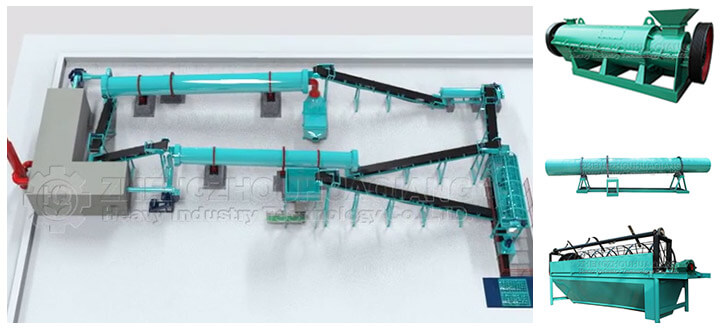In the wave of green transformation in agriculture, organic fertilizer production equipment is becoming a core force in overcoming resource and environmental constraints and reshaping the agricultural ecosystem. Its importance lies not only in technological innovation but also in injecting crucial momentum into sustainable agricultural development.

In traditional agriculture, problems such as straw burning and indiscriminate dumping of livestock manure not only cause serious air and soil pollution but also waste valuable organic resources. Organic fertilizer production equipment, through an integrated process of high-temperature aerobic fermentation, crushing and mixing, and granulation, can efficiently transform agricultural waste into high-quality organic fertilizer. Taking a large-scale farm as an example, after introducing an organic fertilizer production line, it can process 30,000 tons of livestock manure annually, reducing COD emissions by 1,200 tons, while producing 20,000 tons of organic fertilizer, achieving a dual breakthrough in "pollution reduction" and "resource value enhancement," thus solving the problem of agricultural non-point source pollution at its source.
The role of organic fertilizer production equipment in improving soil quality is equally irreplaceable. Soil compaction and fertility decline caused by the long-term excessive use of chemical fertilizers have become bottlenecks restricting high-quality agricultural development. Organic fertilizer produced by organic fertilizer production equipment is rich in organic matter, amino acids, and trace elements, effectively improving soil aggregate structure and enhancing soil water and fertilizer retention capacity. Data shows that continuous application of organic fertilizer produced by this equipment for three years can increase soil organic matter content by 15%-20% and improve the average quality grade of arable land by 0.5 grades, thus strengthening the soil foundation for food security.
Furthermore, organic fertilizer production equipment is also a crucial support for promoting the upgrading of agricultural product quality. With the surge in consumer demand for green agricultural products, crops grown using organic fertilizer produced by this equipment not only have lower pesticide residues but also improve fruit sweetness, taste, and other quality indicators.
In the long run, organic fertilizer production equipment connects the "agricultural waste – organic fertilizer – green agricultural products" circular chain, promoting the transformation of agriculture from a "resource-consuming" model to an "ecologically circular" model. Against the backdrop of the "dual carbon" goals and the rural revitalization strategy, vigorously promoting organic fertilizer production equipment can not only reduce agricultural carbon emissions, but also drive rural employment and industrial upgrading, provide solid technical support for the green transformation of agriculture, and help realize a new pattern of agricultural modernization in which humans and nature coexist harmoniously.